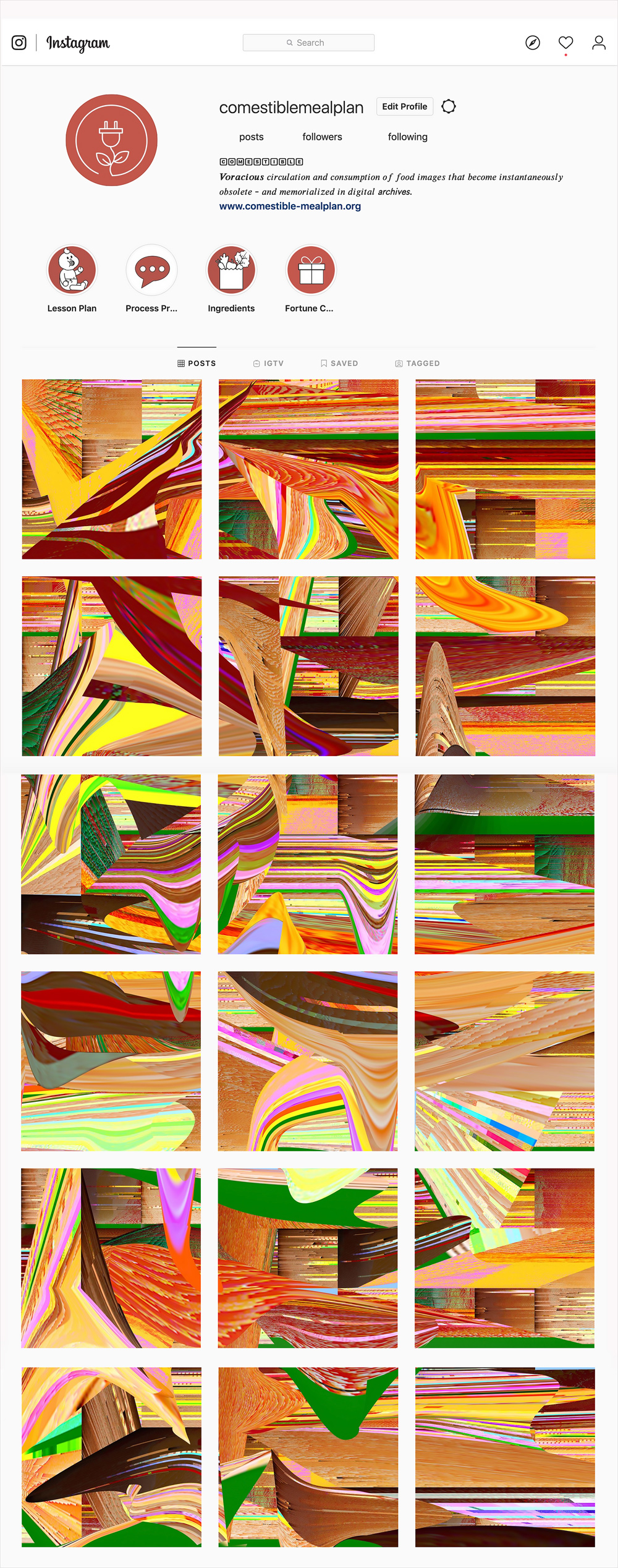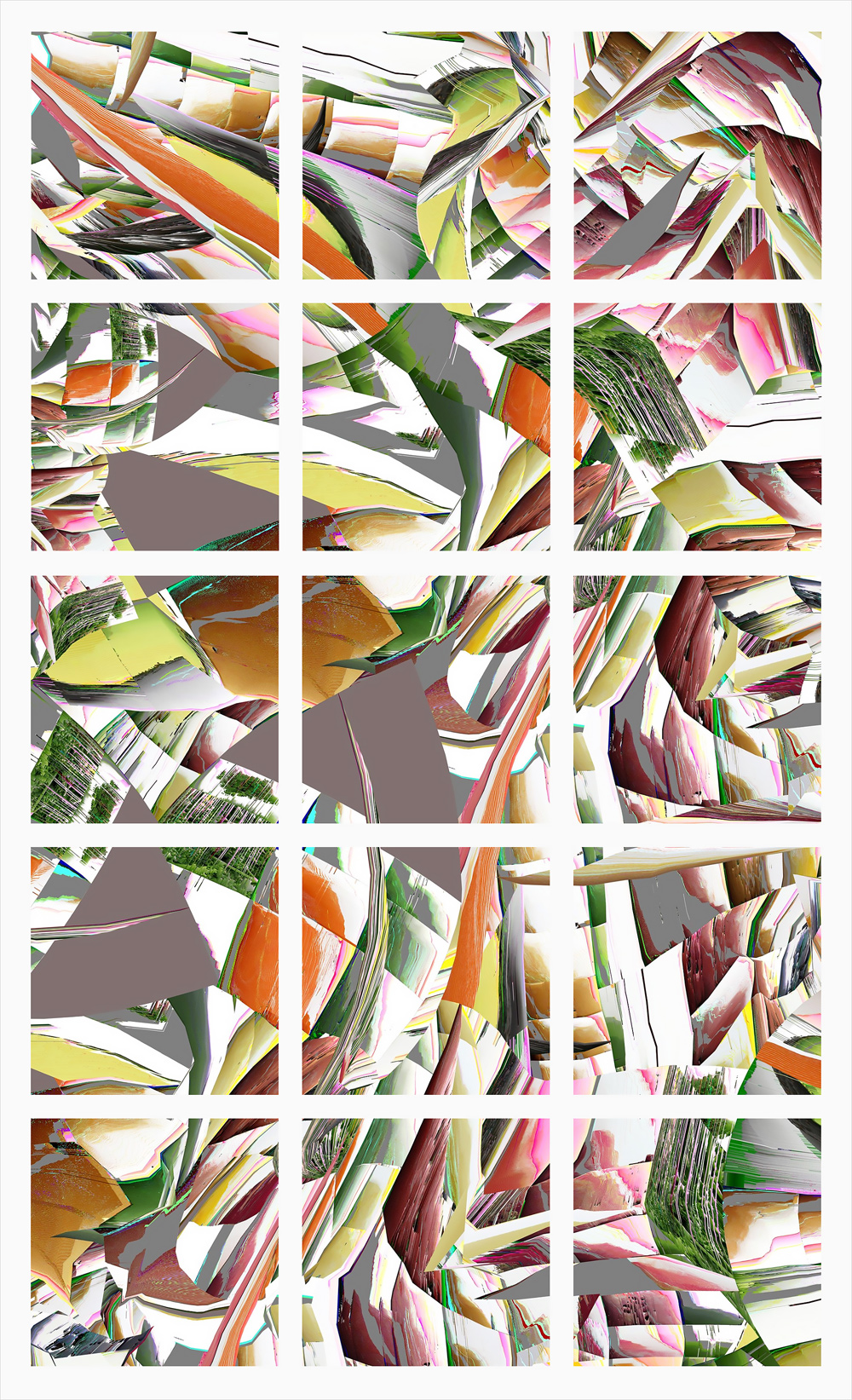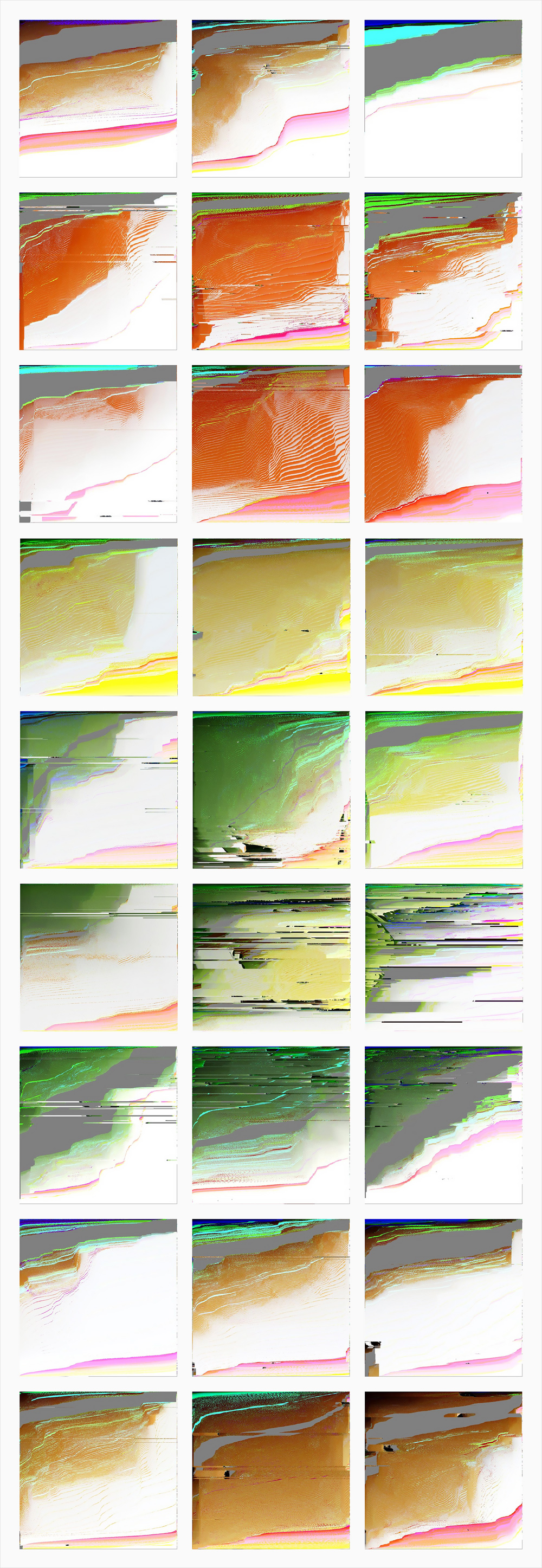
@Comestiblemealplan
2019 - ongoing
Electronic Literature Organization (ELO)
Media Arts Festival – July 16 to 19, 2020
(u)continuity
University of Central Florida, USA
Keywords:
bio-issues, kitchen-makerspace, food-hack, Glitch, dietic utopia/dystopia, value systems, possible futures, electronic-based fictions, digital narratives, gendered narratives, research-creation.
ABOUT THE PROJECT
"Comestible" - a series of works that I develop since 2010 – considers the individual and the mass produced in American diets to enter the bigger debate about money, hope, experience, and ideas related to self-improvement and a better life. Vegetables, fruits and industrial foodstu ffs are recast into an ecosystem that explores “dietic utopias/dystopias” and its complex systems marked by anxieties about production, consumption and value.
"Comestible" - a series of works that I develop since 2010 – considers the individual and the mass produced in American diets to enter the bigger debate about money, hope, experience, and ideas related to self-improvement and a better life. Vegetables, fruits and industrial foodstu ffs are recast into an ecosystem that explores “dietic utopias/dystopias” and its complex systems marked by anxieties about production, consumption and value.
More recently, I renewed my survey into what happens to media as it is absorbed and subjected to the imperatives of dissemination through social media networks. I created @Comestiblemealplan in order to inquire and discuss the narratives that animate Instagram's voracious circulation and consumption of food images.

@Comestiblemealplan is composed of digital Glitches. With the idea of questioning ecological stability (or eff
orts towards an idealized stability) in times when food security and environmental sustainability have become urgent matters, selected digital images of industrialized foodstuff
s from my "Comestible" archive were subjected to digital glitching processes (digital errors that denote the purposeful introduction of 'noise' in a system). The back-end code driving the digital images of foodstuff
s were 'hacked' using texts from literary sources ranging from "Paradise Lost" by John Milton (1667) to "The Edible Woman" by Margaret Atwood (1969). By introducing literary texts with women at the center of the discourse about food production, distribution, and consumption, the Instagram platform provides an interesting space for me to examine gender narratives of dominance, subjugation, and transformation –and the pursuit of the 'good-life' as defi ned by di
fferent ideologies and the rules that help them function.

In "Paradise Lost" --where Milton can be seen as attempting to make sense of a fallen world-- the role of food reflects Eve's power in the epic story (Book 5). In a pivotal point in the poem, one reads that Eve prepares dinner for the angel Raphael, and that Adam and Eve sit to eat with the archangel. Eve, the 'first' woman, had knowledge of the foods available in Eden, she knew how to plant, gather, and select food, as well as how to prepare it. The dinner scene relates specifi cally to food, and it points to Eve as having a natural instinct that Adam obviously lacks – including the aspiration to eat the fruit of knowledge itself. In "The Edible Woman", where Atwood can be seen as using food to explore gender inequality and gendered manipulations behind contemporary diets – the main character gradually rejects foods and is unable to eat at all. At the end of the narrative, in an eff
ort to regain (her)Self, she reaches out for drastic measures through symbolic cannibalism. She bakes a cake in the shape of a woman -–an edible facsimile of herself. And, she eats it!
Pat Badani.
Pat Badani.

@Comestiblemealplan © Pat Badani, 2019.